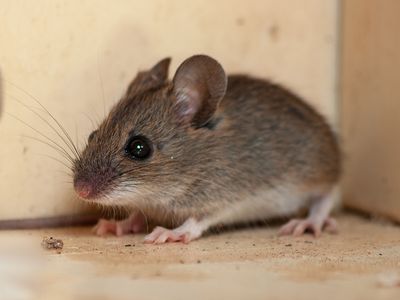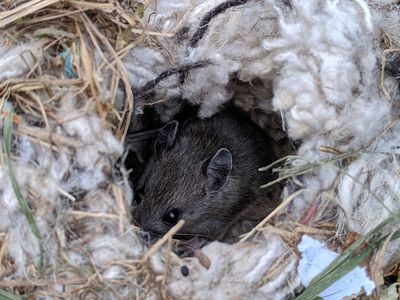Rodents and Fire Hazards: Why PA Homeowners Should Be Concerned
Rodent infestations are among the most common pest problems in Pennsylvania homes. They can spread disease and inflict costly damage, but the risks don’t stop there. These sneaky critters can also create fire hazards if they get inside your home. Evergreen Pest Solutions’ rodent guide explains how mice and rats pose a danger, how to keep them out, and what to do if you spot them inside.

Why Mice and Rats are a Fire Hazard
Rodents can be incredibly destructive once they get inside a home. Their teeth never stop growing, so they constantly gnaw on anything they can—insulation, pipes, wires, wood, and just about anything else in their path.
Electrical wires and gas lines are two of their favorite targets, and damage to either can create a serious fire hazard. Even worse, this damage often goes unnoticed until it’s too late.
While it’s difficult to know the exact number, estimates suggest that rodents are responsible for 20–25% of house fires with unknown causes. That alone is reason enough to take steps to protect your home from these persistent pests.
Why Fall is a Busy Time for Rodent Infestations in Pennsylvania
Rodents can get into homes at any time of year, but fall is an especially busy time for rodent infestations in Scranton, Wilkes-Barre, and throughout Pennsylvania. The reason is simple: Rodents need to find warmer accommodations and new food sources as the outside temperature begins to cool and natural food sources run out.
As they seek a new place to survive the winter in comfort, rodents often find their way into homes. It’s easy for them to get inside. They scurry through an open garage door, squeeze through an opening around utility lines, or exploit a crack in the foundation. Mice only need a hole the size of a dime to get indoors, and rats can squeeze through a nickel-sized opening.
Once inside, rodents make themselves comfortable in secluded areas. Attics, basements, storage rooms, garages, and wall voids are all favorite spots for rodents to nest. As social creatures, they won’t move in by themselves. Rodents live in groups and reproduce quickly, so even just a couple of rodents means that there will soon be dozens more.
How You Can Prevent a Rodent Infestation in Your Home
Avoiding a rodent infestation is essential in protecting your home from the risk of fires and other issues. How can you prevent rodents? Evergreen Pest Solutions recommends the following rodent prevention tips:
- Eliminate standing water around your yard and address other moisture issues.
- Remove potential rodent food sources around your yard, including pet food and bird seed.
- Trim foliage so it doesn’t touch the sides or roof of your house.
- Maintain your yard to keep it free of debris.
- Store firewood and trash bins at least 20 feet from your house.
- Keep all food in your kitchen and pantry stored in sealed containers.
- Clean up after meals by washing dishes, wiping counters, and sweeping floors.
- Address moisture issues inside your house, including leaks and humidity.
- Reduce clutter throughout your house.
What You Should Do if You Find Rodents in Your Home
Sometimes DIY prevention just isn’t enough to keep rodents out. Even with your best efforts, it’s easy to miss small gaps in your home’s exterior or let clutter accumulate in storage areas, and mice and rats are experts at finding and exploiting these openings. The question is, how will you know if they’ve made it inside, and what should you do next?
Rodents usually leave clear signs of their presence. Look for droppings and urine, scratching or scurrying noises in walls and ceilings, greasy marks along baseboards, and holes in food packaging.
If you notice any of these signs, it’s time to call the local pest control experts at Evergreen Pest Solutions. Better yet, contact us before pests infest!
Our home pest control services target existing infestations and prevent rodents and other house-infesting pests from returning. The sooner you act, the less damage rodents can cause, and the better you protect your home and family from fire hazards and other issues they create.







